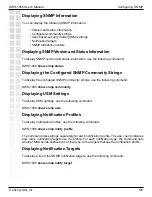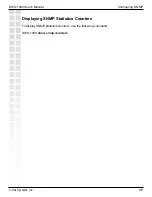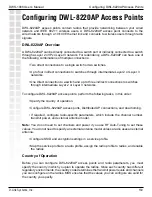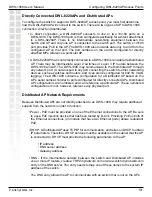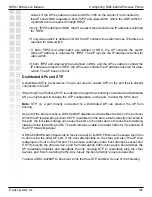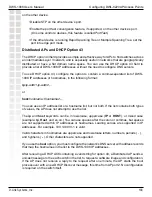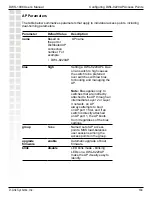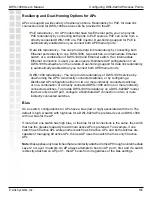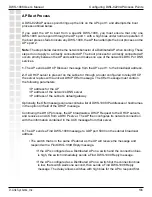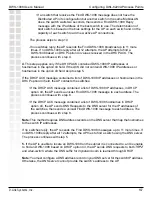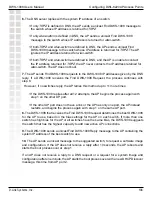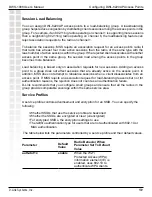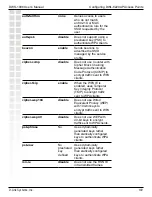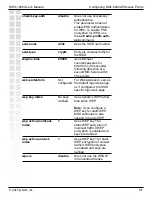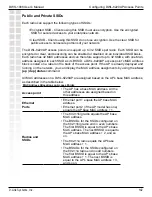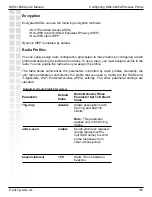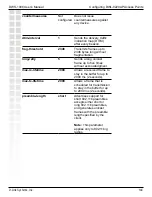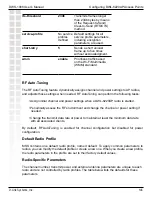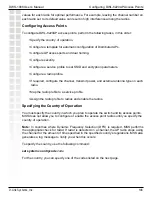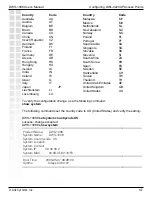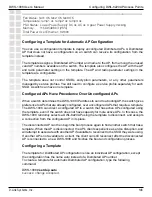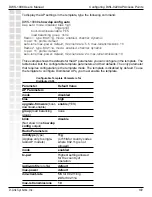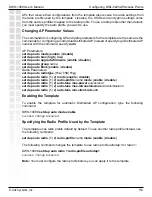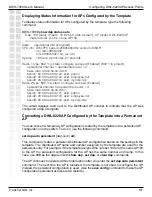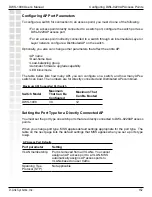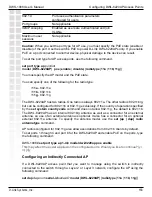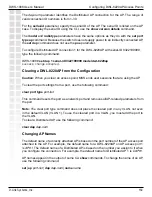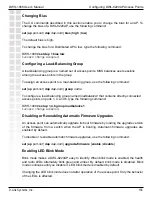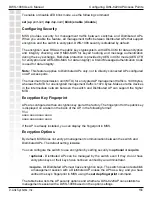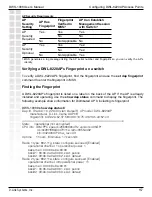
142
DWS-1008 User’s Manual
D-Link Systems, Inc.
Configuring DWL-8220AP Access Points
Public and Private SSIDs
Each radio can support the following types of SSIDs:
• Encrypted SSID - Clients using this SSID must use encryption. Use the encrypted
SSID for secured access to your enterprise network.
• Clear SSID - Clients using this SSID do not use encryption. Use the clear SSID for
public access to nonsecure portions of your network.
The DWL-8220AP access point can support up to 32 SSIDs per radio. Each SSID can be
encrypted or clear, and beaconing can be enabled or disabled on an individual SSID basis.
Each radio has 32 MAC addresses and can therefore support up to 32 SSIDs, with one MAC
address assigned to each SSID as its BSSID. a DWL-8220AP access point’s MAC address
block is listed on a label on the back of the access point. If the AP is already deployed and
running on the network, you can display the MAC address assignments by using the
show
{ap | dap} status
command.
All MAC addresses on a DWL-8220AP are assigned based on the AP’s base MAC address,
as described in the table below.
MAC Address Allocations on Access Points
Access point
• The AP has a base MAC address. All the
other addresses are assigned based on
this address.
Ethernet
Ports
• Ethernet port 1 equals the AP base MAC
address.
• Ethernet port 2 (if the AP model has one)
equals the AP base MAC a 1.
Radios and
SSIDs
• The 802.11b/g radio equals the AP base
MAC address.
• The BSSIDs for the SSIDs configured on
the 802.11b/g radio end in even numbers.
The first BSSID is equal to the AP’s base
MAC address. The next BSSID is equal to
the AP’s base MAC a 2, and so
on.
• The 802.11a radio equals the AP base
MAC a 1.
• The BSSIDs for the SSIDs configured on
the 802.11a radio end in odd numbers.
The first BSSID is equal to the AP’s base
MAC a 1. The next BSSID is
equal to the AP’s base MAC a 3,
and so on.

